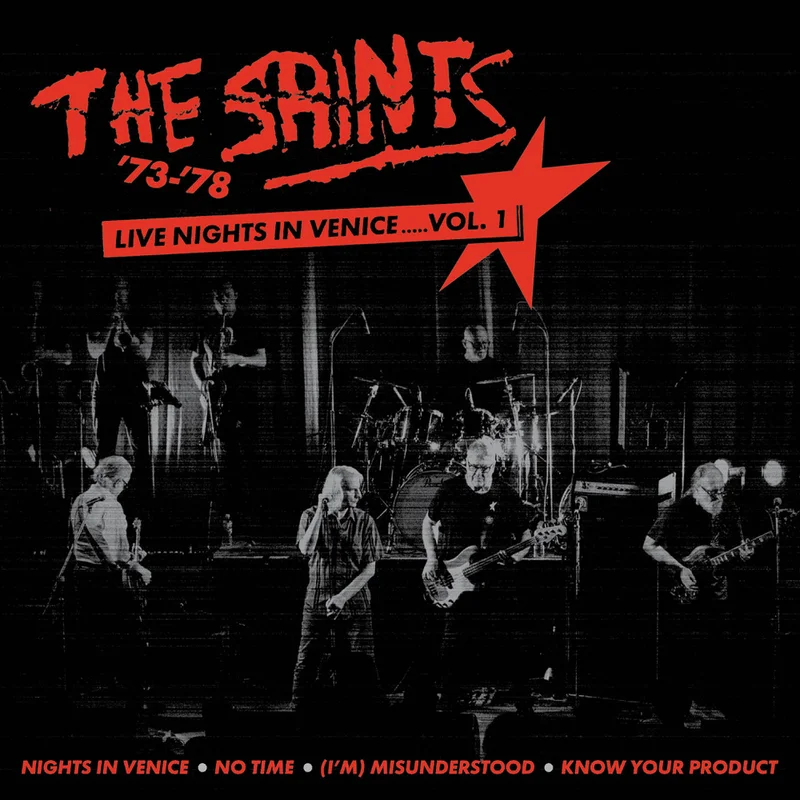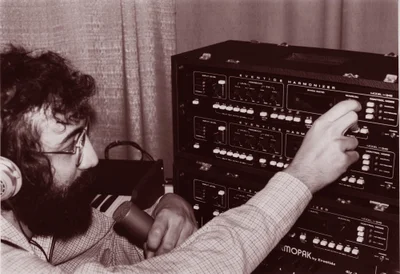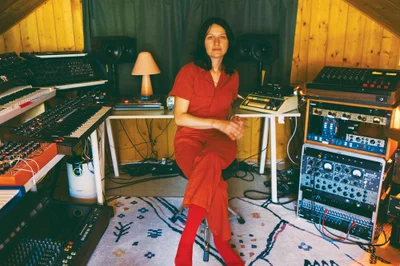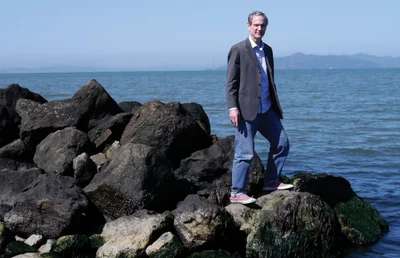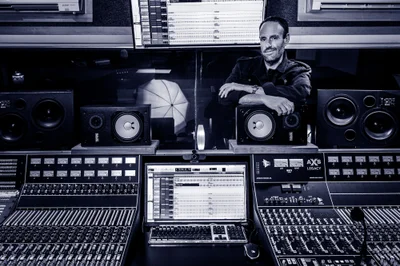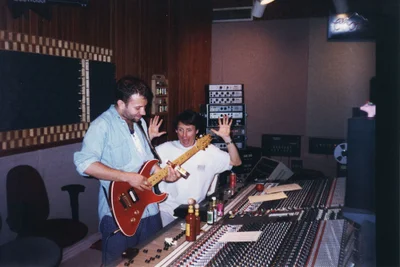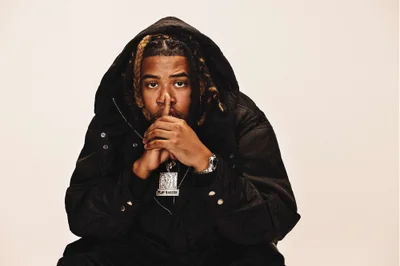When I was in high school, Sire Records was dumping copies Eternally Yours. We'd find cutouts [remaindered copies] all around Northern California.
Yeah, I know. A lot of them ended up in Australia too, and because they were cutouts they managed to sell more imported copies than the Australian issue, so we lost out twice.
Yeah, right. Musicians don't get paid for cutouts. They call it a loss and dump them somewhere.
I don't think I've met anyone in America hardly that has ever bought a copy off the racks. It was always out of the used bins.
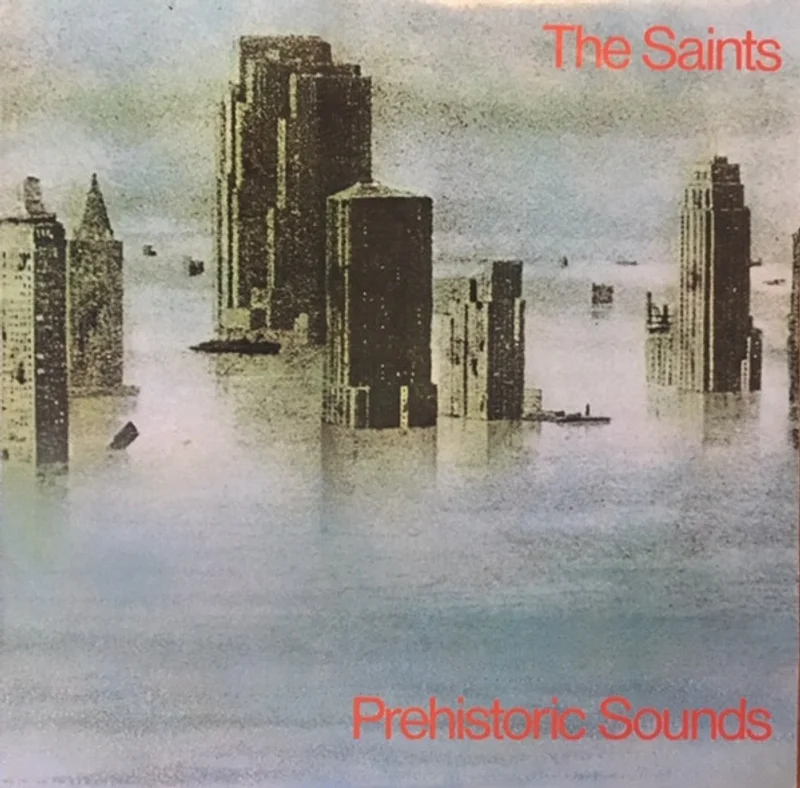
It took me decades to find a copy of Prehistoric Sounds. I'd always be told it's in a similar vein to Eternally Yours. That's the record business for you, and there are a lot of notes about the record business in the 2004 box set [All Times Through Paradise].
Yeah, Sire didn't release the third album, so it didn't get a stateside release.
Yeah, that's too bad. I know things were coming apart anyway. Going back, I've always been curious about the studio session for “(I’m) Stranded” – making your own self-released 7-inch. Was that the first time you guys had been in the studio?
Yeah, definitely. The only experience with the art of recording that I had was a mono cassette deck, and sometimes I'd borrow someone else's cassette deck so that I could record something on one of them, then play something, and record that onto the other. That was my overdubbing experience.
Exactly. I did the same back then!
I heard that that's the way Chuck Berry did his overdubs, because in the ‘50s they would not have multitrack recording machines, so you’d just play the track in the studio and then overdub on it and re-record. Which explains some of the balance and stuff that you hear on those records.
You're stuck with them.
Yeah, but it works.
Were you demoing, or writing songs that way so you could put two parts together?
Yeah, to put song ideas down. I must have done half a dozen of these half-hour long cassettes where I would just do these long pieces. It all ended up getting condensed into what became “Nights in Venice” and that sort of thing. Yeah. It was just working with sound rather than trying to write songs – if there's a distinction. I mean, the sounds can be a song.
But the sound of the songs is important, right?
Oh, it's crucial. I think that it was the sound of the single that we did, the “(I’m) Stranded” single, even more than it was the song. It was our performance, and there was just something about it.
It was interesting that you guys were coming up with your take on what became called punk rock, at the same time but on the other side of the world from the UK and New York.
Yeah, it did sort of become that, but there was no real inkling that there was any mass movement about to happen.
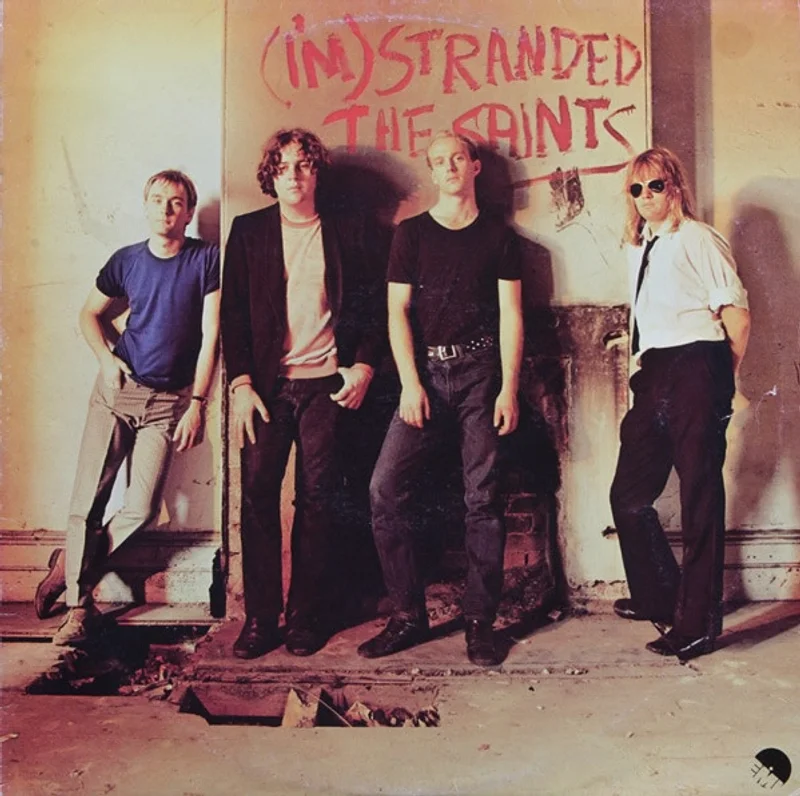
It's true. It's true. So, your first session was with the late Mark Moffatt. I'd be visiting Nashville, hear his name mentioned, and I never put this connection together until doing some research.
Yeah, I saw Mark quite a long time ago now, 15 years ago, and he'd been working in Nashville and he had a successful production career. He said that out of all the hundreds of records he's produced, the only one anyone ever asked him about was The Saints’ record. [laughter] He was a really good engineer and a really nice guy, but he didn't really like what we were doing, which is the irony of it. He was in a group called Railroad Gin, who were progressive-ish serious musos with flutes and tasteful guitar. He was confronted with us, and he did a great job. But it was funny. It was a weird mix. But we were lucky; we could have had some incredible dickhead, which wasn't that uncommon. I had no experience, but you'd hear these stories about engineers who would have some moral, aesthetic, or whatever other issues they had with what bands were trying to do. We were lucky. It was good.
For the first record, you kept the two songs from the single, but you did the rest with Rod Coe, who'd been assigned to you. Was he assigned through EMI?
Yeah, that's right. Rod was the house producer at EMI, and he was a musician himself. He played in a number of tasteful adult-orientated rock groups. He also was the bass player for Slim Dusty; Australia's biggest and longest running country singer. Rod produced dozens of his records. Rod was a really nice guy. I think within minutes of coming into the studio, he decided that the best thing to do would be just to let us do what we wanted to do. He was great!
You and Chris Bailey, the singer, were producing these sessions, which was a little bit unusual for the time.
It was. But I think because the “(I'm) Stranded” single got attention overseas, especially in the UK, they couldn't argue with it. We'd already proved ourselves on our first record. I mean, I'm sure they would have liked it to be different; in fact, the local company only really signed us because they got told to by the head office. And, with the exception of Rod, I don't think we had a lot of friends there.
It was something they had to do.
There was a bit of a resentment.
You did the first LP at Window Studios. Was that an EMI studio?
No, that was just a small private studio in Brisbane. I'm not really sure what they'd recorded before. Ivor [Hay, the Saints’ drummer] found it. Ivor worked at a tape duplicating place, and because he was near the business he did some research, and we found Window Studio. It was also called Sunshine Studios at various times. But it was a jingle studio, and I think also a Christian music studio or something.
So, The Saints fit right in. [laughter]
Yeah, exactly.
That was always the case back then. Studios would be way more multipurpose.
Well, they did everything, but a lot of jingles. I would imagine that jingles probably kept them going.
That market really changed later. I was listening earlier today to I'm Stranded (Deluxe Edition) with the bonus tracks. I hadn't even heard those ‘til today, but what are the “Original Mixes” of the Rod Coe sessions? Rough mixes?
No, they were his mixes. We did the album in a weekend, we were listening to rough mixes, and then Rod took the tapes to Sydney to mix it. Sometime later, we got some test pressings, and I didn't like them. I thought the guitars were spread too wide. It was set up too much like a fairly standard ‘70s mix in a lot of ways. It was not the way that I heard things, which was more in mono. My experience was just playing guitar with the band, and so that's what I was hearing. That's what I wanted the record to be. So, Chris and I went down to Sydney and remixed it. But after all this time, I thought that it sounded really interesting to hear the band presented in the way that had we not had complete control, maybe it might have come out sounding like that. It's not bad, you know. It sounds like a good ‘70s rock record to me now, but at the time that that wasn't what I was after.
What I hear in the album mixes is that quite a bit of it sounds like you're taking one rhythm guitar and then doing a tape delay, like 25 milliseconds, panning left and right to widen it out.
Well, on Rod’s mixes, that's probably what he was doing.
Yeah. Sometimes if you sum it to mono, it kind of collapses because when you do that stereo tape delay…
It's probably some phase issues. I mean, the record was recorded really quickly.
I didn't realize it was recorded in a couple days!
Yeah. Well, we did the single with Mark in five hours. That was going in, recording, and mixing that night. And then I think we recorded nine songs. I don't think there was anything left off. I mean, there was one song that didn't make it onto the album initially, but that's on that reissue. It was pretty much what we played. We got to the end of it, and I really didn't think we could do it any better, so that's what it was. But it did need a a refocus in the mix, which is what we did.
And right around the end of this period, you guys decided to move to London?
Yeah. We moved to London in ‘77. First of all, we moved to Sydney, did some shows around Sydney and Melbourne, and then went overseas. That was really our only option, I’d say. I don't think we would have gotten to a point where we would have been able to record three albums in the space of time that we did if we had stayed in Australia. That was an important development – not meaning a musical progression or anything, because I don't really believe in a linear thing with music. The first album is what it is. I really like it. But we'd done it. So, we wanted to start doing different things. Being in a studio for more than a couple of days, you work out that you can actually do quite a lot, and that was great. That wouldn't have happened in Australia.
A lot of your guitar parts really benefit from adding in a little overdubbed accent.
Well, usually what I do is just put the first guitar part down to act as a base for the rhythm track, really. The other stuff is just a little coloration here and there.
I like how they jump in and out sometimes and add melodies or push a part forward. It's classic. It works really well. I didn't realize until recently that you'd worked so much with engineer Bill Price. The Clash records he did sounded so damn good.
Yeah. Actually, the first record we did in the UK, “This Perfect Day,” was recorded by Bill at Wessex Studio. I really liked working with him. He was unassuming and knowledgeable. A really decent guy. He was great to work with. He’d express his opinion, but there was no agenda or anything, which was nice.
I really think the sounds he got were really good.
Yeah, yeah. And I didn't know the extent of it myself, but he’d actually recorded quite a few records that I liked before we worked with him. He did some interesting stuff afterwards too.
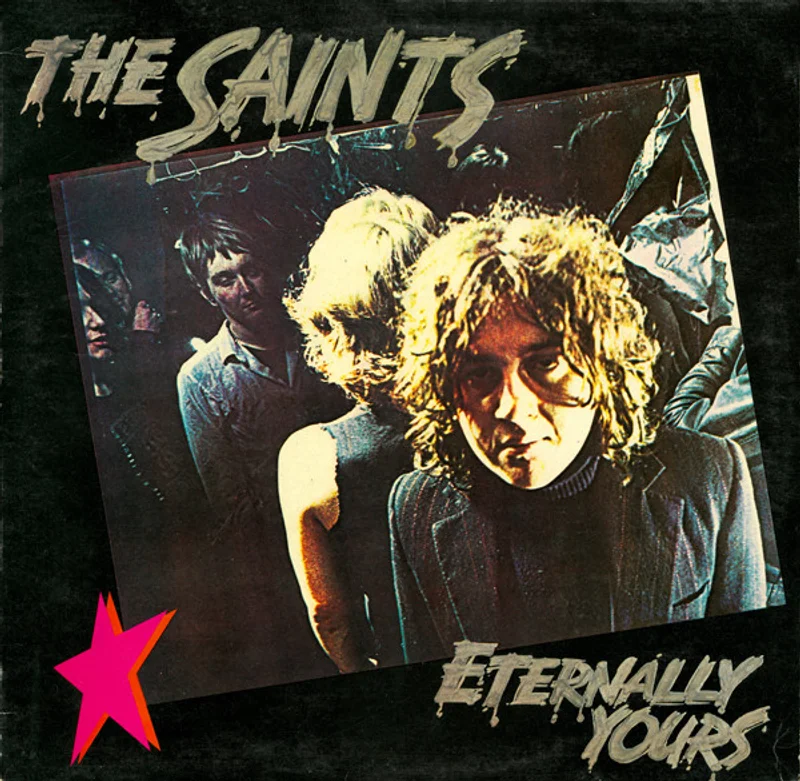
With the second album, Eternally Yours, you mentioned expanding the sound or changing from the first record. Obviously, the noticeable change is the horn section work.
Yeah.
The first time I heard this I was a teen, and I was not expecting to hear, you know, “punk rock” with a Stax horn section.
Yeah, it was polarizing. A lot of people hated it. Some people had an aversion to hearing horns, regardless of what they were doing. We went in to record the second album; we recorded about 11 songs, took rough mixes away for a couple of weeks. I thought what we'd done sounded quite good. About half the songs were leftovers from the first album, and they were still played like the first album. The deciding factor for me, personally, was that The Damned released their second LP [Music for Pleasure] – we beat them to the first single release, but they actually got their second album out before us. I bought it and I thought, “Yeah, it's good, but it just sounds like the first record in a lot of ways.” There wasn't anything that really leapt out even though I preferred it to the first album, weirdly enough. But it made me think, “Everyone's doing this shit now. We've really got to expand ourselves a bit.” We wrote a couple of extra songs and then went back and rearranged the older songs. Like “Know Your Product,” that was completely different. It's on that box set, actually, the earlier recording. It was just a matter of having that couple of weeks; it was inspiring to listen to what we'd actually done. In some ways, the first lot of recordings was like a demo for the second album. And then the second album just fell together, and I think we were all pretty happy with it
It reminds me a lot of the Stax horn section, chart-wise.
Well, that’s what I was after. I had got introduced to a guy called Graham Preskett who wrote out the lines. I'd play him the melody, and it was obvious that it was going to be close harmony. Where Graham really excelled, he firstly said, “Can you pitch this up a semitone, because the horns will sound better.” I was playing it in E, but it got shifted up to F. I tuned the guitar up a semitone because I like the sound of the open E. The first time I heard them play it, I was like, “Oh, fuck, this is brilliant.” Then Graham said, “No, they're not playing it right,” and he went down and he was getting quite animated. They did another take, and it was just a killer. That's the one that was released. I'm glad that he went down and extracted that extra bit. It was a fantastic recording session.
Sometimes in the studio we're so excited to hear an overdub of a new idea that we'll ignore what might be not working or what could be even better.
Yeah, yeah. That comes with experience, and even with experience sometimes – I've just done some recording with Jim White, and I'm still thinking. “Oh, wow, that bit's really great, but…”
That record’s great [After the Flood]. It’s really cool.
Oh, we're doing a new one.
Oh, man. Jim’s one of those drummers that sounds like a drummer playing to the room. You know what I mean? Hearing you two playing together, it sounds really organic in a way.
Well, it is. We take a pretty freewheeling approach to the performance. The songs are never really done exactly the same way twice. We can do it because Jim is such an intuitive and responsive drummer. He’s great.
I’ve seen Dirty Three live in the past, and was like, “Holy shit.” Making changes on a dime.
Yeah, that's exactly what we do, and it's good.
Jumping back to the past: On the third album, Prehistoric Sounds, the band was imploding, right? Chris had tried to leave?
Yeah. He had left. I asked him to come back and do it and he did.
It's the coolest sounding record of these three. It is wider and expansive, and there's more going on.
Yeah, it's pretty amazing in some ways. I mean, it’s amazing to me because of the circumstances in which it was recorded. Chris didn't really like the songs that I'd written and took a long time finishing off lyrics and stuff like that. But his performance on it is fucking immaculate. It's got such weight, such authority. It's as if we're much more experienced than we actually were at the time. I think Chris might have been 21. I was 22.
That's quite a lot to get accomplished by that age.
Yeah. I didn't really think about it at the time, but looking back on it now I'm surprised that we managed to do so much in such a short period of time. I mean it was 18 months between the first album the third one. These days it takes 18 months for me to decide whether I'm going to change the set list.
You did a bunch of Eternally Yours and Prehistoric Sounds at Wessex.
It was absolutely state of the art as far as I could tell. Maybe AIR Studios or something might have been more modern, but Wessex had a really great feel to it. It seemed very spacious. It was an old church hall, and set on nice grounds in the middle of London. It was a great studio. It was one of the upper echelon studios. Freddie Mercury came in when we were there. His boyfriend at the time was recording in the other studio, and every day they would have this massive buffet with champagne which we partook in. We were free to do so. They weren't unfriendly, weren't guarding their caviar and smoked salmon with any jealousy. It was great. I remember being outside having a smoke, and Freddie's white and gold Rolls coming down this narrow side lane to get to the studio. It was impressive.
And Prehistoric Sounds has bonus tracks from back in Sydney, from Paddington Town Hall.
Paddington Town Hall is a live show. It's the only live footage of the band from that era. It’s on my YouTube channel. It's a fairly rough performance, but it's good. I don't think we had very good monitoring or anything like that, so timing sometimes slips a little bit.
That was the end of The Saints of that era, before Chris revived it on his own.
Yeah.
How quickly did you move back to Australia after this after Prehistoric Sounds?
Well, it came out in early September [1978]. I was having problems with my girlfriend, the band had split up, and I wanted to clear my head. I still was writing but I wasn't quite sure how I was going to proceed with it. And it made sense. I'd been away from home for quite a while. I went back to Brisbane at Christmas, basically to say hi to my parents, and then at that stage people heard that I was back in in town and a number of the people that ended up joining Laughing Clowns [Ed’s next band] came up and we had a talk about what had happened. It was a fairly smooth transition in terms of moving into something else.
You had a number of years with Laughing Clowns, right?
About five, I think.
That's really fun stuff. So, the touring you're doing now is a tribute to these first three albums you were involved in.
Yeah, I don't know if I'd call it a tribute; like, for me to pay tribute to myself is unbelievably egotistical.
[laughs] I wouldn't put it that way!
I don't know. We're not a tribute band, and it's not exactly the same band, so it's sort of a new thing. What we're doing came about in the early days of Covid. It was important to try and wrest control of these recordings, as much as we could. We don't own those, but it was important for me to present a picture of what the band was up to when we recorded the first album. I mean, there's no audio stuff, but there's visual information, just to give people a sense of the band. We existed before most people heard this sort of music, and there was no punk scene. In fact, there was no real scene in Brisbane of any kind. So, it’s to show that there was this little spark of activity in what was otherwise a bit of a cultural wasteland. That's what we did. And out of that came, “Well, if we're going to release this record [I’m Strandedfour LP box set], we should really do something live to go hand in hand with it.” And this is what eventually happened. Chris died in the meantime. Algy died in the meantime.
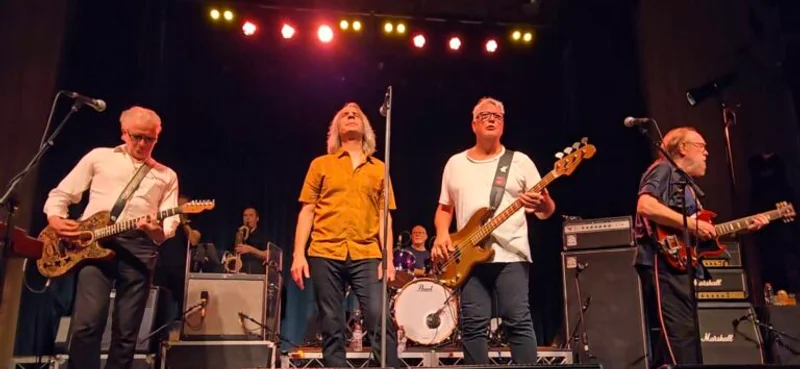
Sadly. How did Mark Arm get involved?
We had we had a list of people and he wasn't on it, and then a mutual friend suggested him. He said that Mark really loves this stuff and he could do it. I thought “Yeah. Shit yeah,” and we had a discussion. He knows and likes the material, which is very important. He puts himself into it. I also said, “Don't try to be Chris.” I said that to everybody, “It doesn't have to be exactly the same.” It wouldn't be exactly the same even if it was the original line up playing it!
Yeah.
What we have is very well presented. It's me, Ivor, Mark, Mick [Harvey], and Peter Oxley, with a horn section, and we're playing the music of The Saints from that era. It's the closest you're gonna get to what it was.
I can't believe you got Mick Harvey in.
Well, Mick a big was a big fan and I know him. I’d bumped into Mick heaps over the years. The Birthday Party, before they became The Bad Seeds, played with the Laughing Clowns quite a bit around Australia and we did some shows in the UK. Mick is such a phenomenal musician.
He's a fantastic producer as well.
Yes. I'm aware of that. I haven't actually worked with him in that capacity, but I've definitely thought about it. He's done so much stuff.
And there's also a live EP of you guys streaming [Live Nights in Venice Vol. 1]?
Yeah, we're actually releasing that as a record. That should be out by the time we're touring. ![]()
